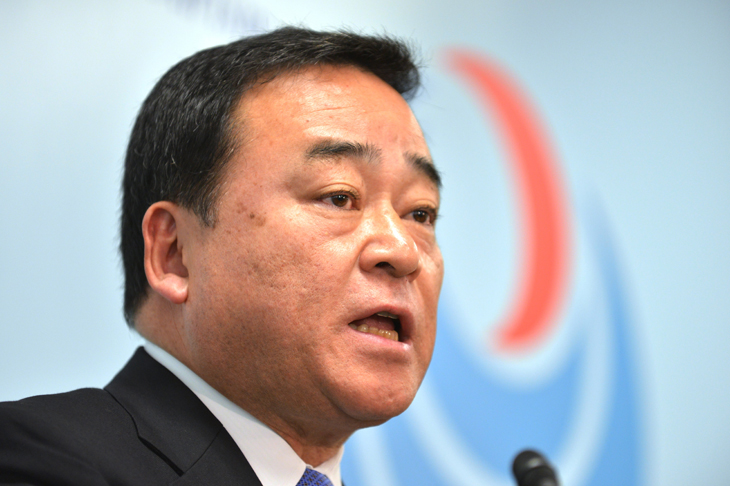Trust the Japs, but not the Poms. As Britain leads the way as chair and initiator of the latest G7 rich nations’ eco-bullying assault on the coal, natural gas and oil that together make up one third of Australia’s total export earnings, it is Japan that, once again, looks to be our potential saviour – as it was after Britain’s last destructive blow at the Australian economy when it (unwisely) joined the Common Market nearly 50 years ago.
And to twist the knife in the wound, Britain reportedly wants the UK-Australia free trade agreement currently being negotiated to be conditional on Australia following Britain’s lead with a strong commitment on carbon emissions – with the prospect that climate tariffs, if Australia does not meet G7 standards of emissions abatement, would be on the agenda at next month’s G7 meeting to which Prime Minister Morrison has been invited.
So last weekend’s headlines supposedly heralded the end (once again) of coal and the eventual demise of gas and oil as the G7 – the Western world’s seven largest advanced economies – agreed that in order to meet climate targets they would take measures to stop international financing of carbon-emitting coal projects by the end of this year and phase out such support for all fossil fuels.
All G7 members have now set a net-zero greenhouse gas emissions goal for 2050 at the latest and stepped up their targets for 2030 — the aim being to limit global warming to 1.5 degrees, rather than the Paris Agreement’s 2-degree target.
But the last rites and the fossil fuel funeral, initiated by this month’s road-to-Damascus conversion from the formerly pro-coal International Energy Agency in a study commissioned by Britain’s global-warming convert Boris Johnson, will need the ‘necessary cooperation’ of a heap of nations with vested interests the other way.
And with the media providing former prime minister Malcolm Turnbull with the opportunity to warn that Australia is more ‘out-of-step with its allies than ever on the issue of climate change’, there is merit in the admonition about slips between cups and lips
Wishful thinking rather than reality has prompted the local greenish media to make much of Japan’s involvement in the G7 statement, with one describing it as a victory for the UK’s goal of a global fossil phase-out and reporting that ‘Getting Japan on board to end international financing of coal projects within such a short timeframe means those countries which still back coal are increasingly isolated (like China as the last major supporter of overseas coal) and could face more pressure to stop’.
But there is mounting evidence of resistance to the G7 plan from Japan, which Bloomberg says accounted for more than half of the $6.6 billion of coal support from G7 countries in 2019, and which is now to be allowed ‘exceptions’, with a Japanese senior official reported to have left unanswered the question whether Tokyo interpreted the statement as a complete ban.
These concerns that Japan, a major consumer of coal, oil and natural gas, may not in reality support the pledge to end international coal financing prompted US special climate change envoy John Kerry to acknowledge the problem and the need for the ‘important effort to find unity on the road ahead’.
And the BBC, in reporting Japan’s opposition to restrictions on fossil fuel power, said the British government thought Japan may change its stance by November’s G7 meeting. Think again!
The stated G7 goal of pressuring the rest of the world to follow its lead was further undermined by mixed messages from the group itself, not only by the uncertainty over whether Japan has agreed to end foreign coal financing, but also with Japan and Germany balking at agreeing to the British proposal to end domestic coal-fired power by 2030.
So the G7 statement left open the question of exactly when member countries would phase out coal within their domestic power supply. This is a key issue for Japan which has relied on fossil fuel to generate almost 80 per cent of its electricity (of which Australian coal fuels almost half) since the Fukushima nuclear disaster a decade ago, with Japan’s Economy Minister Hiroshi Kajiyama telling a weekend press conference that his country’s island geography made it harder to ensure a stable power supply. ‘In any consideration of abandoning coal we must also consider whether Japanese industry can survive the push for net-zero carbon emissions’. And Japan is expected to continue exporting highly efficient low-emissions coal power plants to developing countries (to which Australia then exports high-quality coal) and using such facilities at home, despite the G7 manifesto.
All this muddies the impact of the statement, whose generally strong words, according to observers, mark a departure from the tepid G7 climate directives of the past four years, when the Trump administration stood in the way of more ambitious statements. The ramped-up rhetoric, no doubt encouraged by the Biden Green House, is supposed to increase pressure on coal-reliant economies such as India, Australia, South Korea and South Africa — who were guests at last week’s G7 but did not sign up to any of the pledges — and the G20 countries, which account for more than four-fifths of greenhouse gas emissions. Leaders from those countries are set to meet in late October, ahead of the United Nations COP26 climate talks hosted by climate evangelist Boris Johnson in Glasgow.
By then, the controversial International Energy Agency’s recent report, which reveals the revolutionary changes and huge costs of reaching zero omissions by 2050, will have brought a touch of reality to uncosted and unrealistic aspirations, with its conclusion that it will require a tripling of clean energy investment by 2030 to around $4 trillion a year. This adds merit to the Morrison government’s refusal to state firm targets until it knows how to achieve them and at what cost.
Apart from problems over coal, tensions are reported to have flared in the G7 discussions on how much money each member would spend supporting developing and middle-income countries to transition away from fossil fuels and cope with the ‘destructive impacts of climate change’. Without new cash commitments emerging from the June G7 leaders meeting in Cornwall, there is well-founded concern that big emerging economies, such as India, won’t agree to set new emissions goals; ‘money holds the key’. So, despite the excited headlines, the G7 has a long long way to go before killing off fossil fuel in anywhere but its own back yard.
Got something to add? Join the discussion and comment below.
Get 10 issues for just $10
Subscribe to The Spectator Australia today for the next 10 magazine issues, plus full online access, for just $10.
You might disagree with half of it, but you’ll enjoy reading all of it. Try your first month for free, then just $2 a week for the remainder of your first year.














Comments
Don't miss out
Join the conversation with other Spectator Australia readers. Subscribe to leave a comment.
SUBSCRIBEAlready a subscriber? Log in